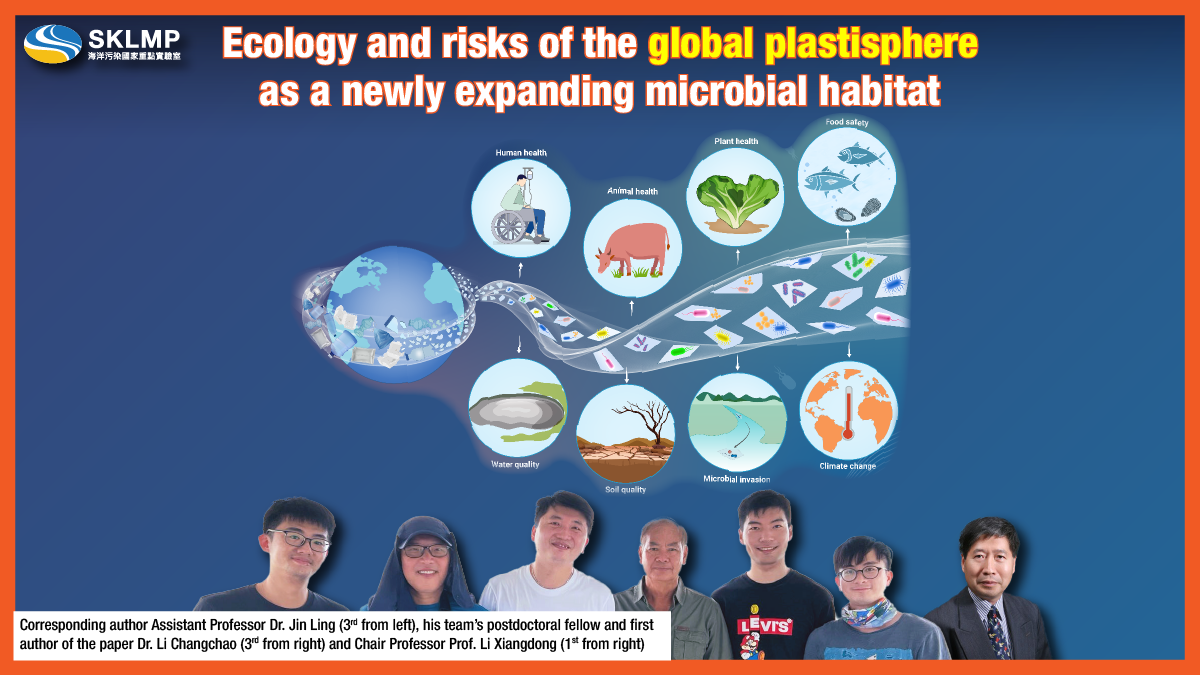Ecology and risks of the global plastisphere as a newly expanding microbial habitat

Plastic offers a new habitat for microbial colonization, the plastisphere. Understanding the microbial ecology and associated risks of the plastisphere is crucial due to the vast and growing amount of plastic waste. A recent global study investigates the plastisphere using samples from freshwater, seawater, and terrestrial ecosystems. The plastisphere recruits a unique microbial community with a distinct elemental metabolic potential, which poses a threat to the functioning of natural ecosystems. Plant, animal, and human pathogens are also significantly enriched in the plastisphere, posing critical One Health risks.
This study, published in The Innovation, was conducted by State Key Laboratory of Marine Pollution (SKLMP), City University of Hong Kong, in collaboration with Department of Health Technology and Informatics, and Department of Civil and Environmental Engineering, HKPolyU, as well as other world-leading institutions. SKLMP member Dr. Nathanael Jin, along with his postdoc, Dr. Li Changchao, led their research team and worked together with another SKLMP member Prof. Li Xiangdong and many international researchers to observe novel microbial ecology in the plastisphere.
The study reveals that plastisphere microbiomeshave a high potential for breaking down organic compounds, which could accelerate carbon turnover. The nitrogen cycle-related functional profile is altered in the plastisphere, particularly in freshwater ecosystems, where denitrifiers are abundant and may contribute to the release of harmful substances such as nitrite and nitrous oxide. Additionally, the plastisphere is also a mobile reservoir of harmful pathogens, posing a threat to the health of animals, plants, and humans. These findings emphasize the importance of integrating microbial risks into the plastic pollution risk assessment framework and highlight the urgent need to address the issue of plastic pollution to prevent it from becoming a significant threat to planetary health.
More Info.: https://doi.org/10.1016/j.xinn.2023.100543